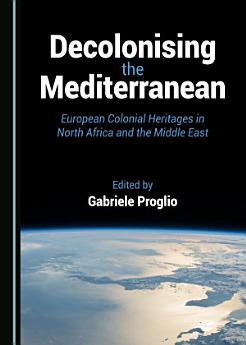Decolonising the Mediterranean: European Colonial Heritages in North Africa and the Middle East
Gabriele Proglio
2017 mar. · Cambridge Scholars Publishing
Liburu elektronikoa
125
orri
family_home
Egokia
info
reportBalorazioak eta iritziak ez daude egiaztatuta Lortu informazio gehiago
Liburu elektroniko honi buruz
Decolonising the Mediterranean means, first and foremost, investigating how the legacy of colonial rule over bodies and land has been used by other entities and powers to impose new forms of hegemony after the fall of empires and European powers. It means denouncing and dissecting the tools employed in the production of new geometries of power in the global Mediterranean, as well as in the farthest, most recondite corners of the Mediterranean World. Decolonising the Mediterranean is an epistemological practice of border dismantling and scrutiny of the ways in which powers overlap and intertwine. The multiplication of the border is investigated in this volume from an in-between position, namely a specific positionality of subjectivities, in order to connect the global and local, and address Mediterranean issues with a transnational approach. Decolonising the Mediterranean means thinking of the Mediterranean as a space of investigation beyond its geographical boundaries. Finally, it requires deconstructing the power relations at play, viewing the Mediterranean as an excess space of signification in order to reconsider the past and present stories and subjectivities erased by Eurocentric, nationalist historical discourse. In this sense, the Mediterranean may, then, be more than a “method”: a matter of politics, or a space without borders where the future can be reinvented from the bottom up.
This volume is structured into six chapters, each written by a different author focusing on a single North African, Maghreb and Mashrek country’s colonial legacy to investigate borders in a transnational perspective. While the research directions and topics of investigation adopted here are different, they can all be situated on the boundary line described above, and each chapter suggests a specific path for decolonising knowledge.
Egileari buruz
Gabriele Proglio is Assistant Professor in History of the Mediterranean and History of the Arab World at the University of Tunis “El Manar”, Tunisia, and Research Fellow in the Department of History and Civilization at the European University Institute, Italy. His publications include Border Lampedusa. Subjectivity, visibility and memory in stories of sea and land (2017), Libia 1911–12. Immaginari coloniali e italianità (2016); and Memorie oltre confine. La letteratura postcoloniale italiana in prospettiva storica (2013) among others.
Baloratu liburu elektroniko hau
Eman iezaguzu iritzia.
Irakurtzeko informazioa
Telefono adimendunak eta tabletak
Instalatu Android eta iPad/iPhone gailuetarako Google Play Liburuak aplikazioa. Zure kontuarekin automatikoki sinkronizatzen da, eta konexioarekin nahiz gabe irakurri ahal izango dituzu liburuak, edonon zaudela ere.
Ordenagailu eramangarriak eta mahaigainekoak
Google Play-n erositako audio-liburuak entzuteko aukera ematen du ordenagailuko web-arakatzailearen bidez.
Irakurgailu elektronikoak eta bestelako gailuak
Tinta elektronikoa duten gailuetan (adibidez, Kobo-ko irakurgailu elektronikoak) liburuak irakurtzeko, fitxategi bat deskargatu beharko duzu, eta hura gailura transferitu. Jarraitu laguntza-zentroko argibide xehatuei fitxategiak irakurgailu elektroniko bateragarrietara transferitzeko.






